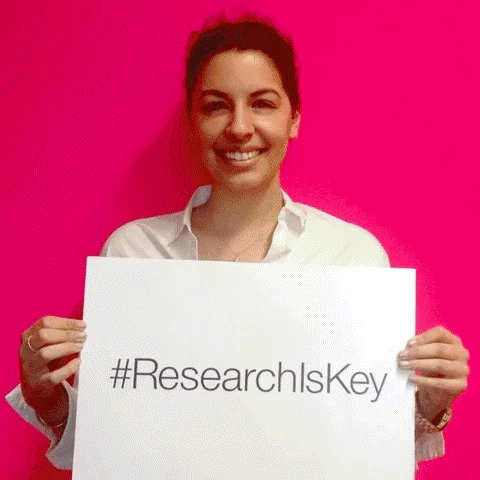Ivermectin, The Cancer-Beating Secret to Revolutionize Treatment

We recently published a article about the Complexities of Ivermectin's Impact on Human Health
https://cyrildelatorre.substack.com/p/067-unraveling-the-enigma-and-complexities
I wanted to further talk about the Potential Benefits of Ivermectin in Cancer Treatment
The exploration of ivermectin as a cancer treatment is indeed intriguing, given its ability to inhibit the NF-κB pathway. This pathway is known to be involved in the regulation of immune responses and inflammation, both of which can contribute to cancer development and progression. By inhibiting NF-κB, ivermectin could potentially slow down or even reverse the growth of cancer cells, offering a new avenue for treatment, especially in cases where the NF-κB pathway is dysregulated.
In the world of medical research, breakthroughs often come from unexpected sources. Ivermectin, a drug primarily known for treating parasitic infections, has recently caught the attention of cancer researchers. This surprising turn of events has opened up new possibilities in the fight against one of humanity's most persistent health challenges.
Ivermectin's potential in cancer treatment stems from its ability to inhibit the NF-κB pathway, a key player in cancer development and progression. This discovery has sparked excitement in the scientific community, as it suggests that ivermectin might be able to slow or even reverse cancer cell growth, particularly in cases where traditional treatments fall short.
However, the path from promising laboratory results to effective cancer treatment is rarely straightforward. While ivermectin has shown potential in early studies, its effectiveness and safety for cancer treatment in humans remain subjects of ongoing research and debate. The complex nature of cancer and the wide-ranging effects of ivermectin on cellular processes call for careful and thorough investigation.
In this article, we'll explore the current state of scientific evidence regarding ivermectin's potential as a cancer treatment. We'll delve into how it works at the cellular level, particularly its interaction with the NF-κB pathway, and what this could mean for both cancer cells and normal bodily functions. We'll also address the potential risks and side effects, especially considering the higher doses that might be needed for cancer treatment.
Ivermectin's long history of use in treating parasitic diseases provides valuable insights into its safety profile. However, its application in cancer treatment would likely involve different dosages and durations, necessitating further research to establish its safety and efficacy in this new context.
As we navigate the complexities of ivermectin's potential role in cancer treatment, we aim to provide a balanced overview of the current research. We'll highlight both the promising aspects and the challenges that researchers face in potentially repurposing this well-known drug as a cancer-fighting agent. Join us as we explore this intriguing development in the ongoing quest for more effective cancer treatments.
Cracking the Cancer Code: Ivermectin's Mechanism of Action Revealed
At the heart of ivermectin's unexpected foray into cancer research lies its ability to interfere with a cellular process known as the NF-κB pathway. Think of this pathway as a master switch in our cells, controlling everything from inflammation to cell survival. In healthy cells, this switch is carefully regulated. But in cancer cells, it's often stuck in the "on" position, driving uncontrolled growth and spread.
This is where ivermectin enters the picture. By turning down the NF-κB pathway, ivermectin essentially cuts off a vital lifeline for cancer cells. It's like unplugging a power cord – without this crucial energy source, cancer cells struggle to survive and multiply.
But ivermectin's potential goes beyond just slowing cancer growth. Research has shown it can actually trigger cancer cell suicide, a process scientists call apoptosis. This has been observed in a variety of cancer types, from breast and colorectal cancers to leukemia, suggesting ivermectin might have broad applications in oncology.
Perhaps even more intriguing is ivermectin's potential as a team player in cancer treatment. When combined with traditional chemotherapy drugs, ivermectin appears to enhance their effectiveness. It's as if ivermectin weakens the cancer's defenses, making it more vulnerable to the chemotherapy's attack. This synergy could be a game-changer, potentially allowing for lower doses of harsh chemotherapy drugs and reducing their side effects.
Moreover, ivermectin shows promise in tackling one of the most frustrating aspects of cancer treatment: drug resistance. Many cancers develop resistance to chemotherapy over time, rendering once-effective treatments useless. Ivermectin, by inhibiting the NF-κB pathway, may help overcome this resistance, making stubborn cancer cells susceptible to treatment once again.
It's important to note that while these findings are exciting, they're still largely based on laboratory studies and animal models. The journey from lab bench to bedside is long and complex, especially when repurposing a drug for an entirely new use. Researchers are now working to translate these promising early results into practical treatments that can benefit cancer patients.
As we continue to explore ivermectin's potential, we're gaining new insights not just into this specific drug, but into the complex biology of cancer itself. Each discovery brings us one step closer to more effective, less toxic cancer treatments – a goal that could improve millions of lives worldwide.
Walking the Tightrope: Balancing Ivermectin’s Benefits and Risks
While the potential benefits of ivermectin in cancer treatment are promising, it's crucial to consider the associated risks and challenges. The toxicity profile of ivermectin, which includes gastrointestinal disturbances and neurological symptoms, could be exacerbated when used at higher doses for cancer treatment.
However, it's important to note that ivermectin has a relatively wide therapeutic index. The lethal dose is approximately 50 times greater than the recommended dose for an 80 kg male (16 mg recommended, over 800 mg considered lethal). This safety margin is significantly larger than that of many other commonly used substances, including water.
Despite this favorable safety profile, the use of ivermectin for cancer treatment would likely require higher and more sustained doses than those used for antiparasitic treatment. This could potentially lead to an increase in side effects or unforeseen complications. Therefore, careful dosing studies and monitoring protocols would need to be established before ivermectin could be widely used in cancer therapy.
From Lab to Life: The Potential Impact of Ivermectin on Cancer Treatment
The scientific evidence supporting ivermectin's potential in cancer treatment is growing but still in its early stages. Most studies to date have been conducted in vitro or in animal models, with limited clinical data available.
Several peer-reviewed studies have specifically addressed the interaction between ivermectin and the NF-κB pathway. For example, a study by Singh and Suman (2015) demonstrated that ivermectin inhibits the NF-κB pathway by suppressing IKKβ, a key enzyme involved in NF-κB activation. This suppression led to decreased proliferation and increased apoptosis in cancer cells.
Another study by Juarez et al. (2018) found that ivermectin can kill breast cancer cells through a combination of apoptosis and necrosis. The study reported that cancer cells were more sensitive to ivermectin than normal cells, and that the drug induced a novel cell death mechanism involving enhanced autophagic apoptosis and inflammatory necrosis/pyroptosis.
Research has also shown that ivermectin can reverse drug resistance in cancer cells. A study by Jiang et al. (2019) demonstrated that low, non-cytotoxic doses of ivermectin could drastically reverse resistance of tumor cells to chemotherapeutic drugs both in vitro and in vivo. This effect was attributed to ivermectin's ability to reduce the expression of the P-glycoprotein (P-gp) drug efflux pump by inhibiting its transcription factor NF-κB.
The Price of Promise: Navigating Ivermectin's Side Effects
The side effects of ivermectin are generally mild and transient when used at standard doses for antiparasitic treatment. Common side effects include gastrointestinal disturbances such as diarrhea, nausea, and vomiting, as well as dizziness, headache, and itching or rash. More serious side effects are rare but can include neurological symptoms such as confusion, seizures, or ataxia, severe skin reactions, and allergic reactions.
However, the side effect profile of ivermectin when used at higher doses or for extended periods, as might be necessary for cancer treatment, is not yet well established. Cancer patients, who may already be experiencing side effects from their disease or other treatments, could potentially be more susceptible to adverse effects from ivermectin.
It's worth noting that ivermectin has been used extensively worldwide, with over 4 billion doses distributed globally since its introduction. This widespread use, particularly in mass drug administration programs for parasitic diseases, provides valuable data on its safety profile. However, most of this data pertains to its use as an antiparasitic agent, and its safety profile in the context of cancer treatment may differ.
From Parasites to Patients: Ivermectin's Global Journey
Current research on ivermectin's potential in cancer treatment is primarily focused on understanding its mechanisms of action and evaluating its efficacy in various cancer types. In vitro and animal studies have shown promising results, but more clinical research is needed to establish its effectiveness and safety in human cancer patients.
- Conducting clinical trials to evaluate ivermectin's efficacy and safety in various types of cancer, both as a standalone treatment and in combination with conventional therapies.
- Developing targeted delivery methods to concentrate ivermectin in cancer cells while minimizing its effects on healthy tissues.
- Investigating the long-term effects of ivermectin use in cancer patients, including its impact on immune function and normal cellular processes.
- Exploring the potential of ivermectin in cancer prevention, given its ability to modulate key cellular pathways involved in carcinogenesis.
- Studying the synergistic effects of ivermectin with other emerging cancer therapies, such as immunotherapies or targeted molecular therapies.
The Future is Now: Next Steps in Ivermectin Cancer Research
As we stand on the brink of potentially groundbreaking cancer treatment, the scientific community is abuzz with activity, meticulously mapping out the next steps in ivermectin research. While early studies in laboratories and animal models have painted a promising picture, the real test lies ahead: how will ivermectin perform in human cancer patients?
Imagine a future where oncologists have a new weapon in their arsenal against cancer – one that's been hiding in plain sight for decades. This is the tantalizing possibility that drives researchers forward, but the path from possibility to reality is paved with rigorous studies and careful analysis.
At the forefront of this scientific journey are clinical trials. These crucial studies will put ivermectin to the test in real-world scenarios, evaluating its effectiveness and safety across various cancer types. Will ivermectin stand alone as a cancer fighter, or will it prove most valuable as a sidekick to existing treatments? Only time – and meticulous research – will tell.
But the potential of ivermectin extends beyond just treatment. Some researchers are asking a provocative question: could this drug help prevent cancer before it even starts? Given its ability to influence cellular pathways involved in cancer development, ivermectin might one day play a role in cancer prevention strategies.
As exciting as these prospects are, scientists are also grappling with practical challenges. How can we ensure ivermectin reaches cancer cells while sparing healthy tissues? This question has sparked innovative research into targeted delivery methods, aiming to maximize ivermectin's cancer-fighting potential while minimizing side effects.
Looking further ahead, researchers are exploring how ivermectin might complement cutting-edge cancer therapies. Could it enhance the effectiveness of immunotherapies, helping the body's own immune system combat cancer more effectively? Or might it work synergistically with targeted molecular therapies, delivering a one-two punch to cancer cells?
As we venture into this new frontier of cancer research, one thing is clear: the story of ivermectin is far from over. Each study, each trial, each discovery brings us closer to understanding the true potential of this unexpected ally in the fight against cancer. While the road ahead is long and challenging, the potential reward – more effective, less toxic cancer treatments – makes every step worthwhile.
So, as laboratories hum with activity and clinical trials get underway, we stand at the threshold of a new era in cancer treatment. Will ivermectin live up to its early promise? Only time will tell, but one thing is certain: the journey of discovery is just beginning, and the best may be yet to come.
The potential of ivermectin in cancer treatment represents an exciting area of research that merges the fields of parasitology and oncology. While the initial findings are promising, it's important to approach this potential new application of ivermectin with cautious optimism. The complex nature of cancer and the multifaceted effects of ivermectin on cellular processes necessitate rigorous scientific investigation before any definitive conclusions can be drawn.
As research in this area progresses, it will be crucial to balance the potential benefits of ivermectin in cancer treatment against its risks and side effects. The development of targeted delivery methods, optimization of dosing regimens, and careful monitoring of long-term effects will be key to harnessing ivermectin's potential as a cancer therapeutic agent.
Ultimately, the exploration of ivermectin's role in cancer treatment underscores the importance of continuing to investigate established drugs for new therapeutic applications. This approach, known as drug repurposing, offers the potential to accelerate the development of new cancer treatments by leveraging existing safety data and manufacturing processes.
As we move forward, collaboration between researchers, clinicians, and regulatory bodies will be essential to fully understand and potentially harness the anticancer properties of ivermectin. While much work remains to be done, the ongoing research into ivermectin's potential in cancer treatment offers hope for new therapeutic options in the fight against this complex and challenging disease.

Collin’s Experience
Collin had always been fascinated by the complexities of medical research. As a graduate student in pharmacology, he spent countless hours poring over scientific journals, always on the lookout for groundbreaking discoveries. One evening, while sifting through a stack of recent publications, an article about ivermectin caught his eye.
"Ivermectin?" Collin muttered to himself. "Isn't that the anti-parasitic drug?"
Intrigued, he delved into the paper, his eyes widening as he read about ivermectin's potential role in cancer treatment. The article detailed how this well-known drug, primarily used to combat parasitic infections, was showing promise in inhibiting the NF-κB pathway crucial to cancer development.
Collin couldn't contain his excitement. He immediately called his research supervisor, Dr. Patel.
"Dr. Patel, have you seen this?" Collin asked breathlessly. "Ivermectin might be a game-changer in cancer treatment!"
Dr. Patel listened patiently as Collin enthusiastically summarized the article's key points – the drug's ability to induce apoptosis in cancer cells, its potential to overcome drug resistance, and its surprisingly favorable safety profile.
"Slow down, Collin," Dr. Patel chuckled. "It's certainly interesting, but remember, we're still in the early stages of understanding ivermectin's role in cancer treatment."
Undeterred, Collin spent the next few weeks immersing himself in all the available literature on ivermectin and cancer. He created detailed notes, drawing connections between different studies and hypothesizing about potential research directions.
One day, as he was explaining his findings to a fellow student in the campus café, he overheard a conversation at the next table. A woman was telling her friend about her mother's struggle with breast cancer and the harsh side effects of her treatment.
Collin's heart raced. He thought about the potential of ivermectin to enhance cancer treatments while possibly reducing side effects. While he knew it was far too early to make any claims, he couldn't help but feel a surge of hope for future cancer patients.
That evening, Collin approached Dr. Patel with a proposal for his thesis project – a study on ivermectin's effects on drug-resistant breast cancer cells. Dr. Patel, impressed by Collin's passion and thorough research, agreed to supervise the project.
As Collin left Dr. Patel's office, he felt a mix of excitement and responsibility. He knew the road ahead would be long and challenging, filled with countless experiments, setbacks, and sleepless nights. But if his work could contribute even a small piece to the puzzle of cancer treatment, it would all be worth it.
With renewed determination, Collin headed back to the lab, ready to play his part in unraveling the potential of ivermectin in the fight against cancer.
Key Takeaways
- Ivermectin shows potential as a cancer treatment due to its ability to inhibit the NF-κB pathway, which is involved in cancer development and progression.
- The drug has demonstrated the ability to induce apoptosis and necrosis in cancer cells, particularly in breast cancer studies.
- Ivermectin has a favorable safety profile, with a lethal dose 50 times greater than the recommended dose, making it potentially safer than many other treatments.
- Over 4 billion doses of ivermectin have been distributed globally, primarily for parasitic diseases, providing a substantial safety database.
- Ivermectin may have synergistic effects with conventional chemotherapy drugs and could help overcome drug resistance in cancer cells.
- The use of ivermectin for cancer treatment may require higher doses than those used for antiparasitic purposes, which could lead to increased side effects.
- Inhibition of the NF-κB pathway by ivermectin could potentially suppress normal immune responses, raising concerns about its impact on overall immune function.
- Current research on ivermectin's anticancer properties is primarily based on in vitro and animal studies, with limited clinical data available in humans.
- Ivermectin has shown promise in reversing drug resistance in cancer cells by reducing the expression of the P-glycoprotein drug efflux pump.
- Future research directions include clinical trials, developing targeted delivery methods, and exploring ivermectin's potential in cancer prevention and combination therapies.
Your Top Questions Answered
What is the primary mechanism by which ivermectin may fight cancer?
Ivermectin primarily fights cancer by inhibiting the NF-κB pathway, which is involved in cancer development and progression. This inhibition can lead to decreased cell proliferation and increased apoptosis in cancer cells.
Is ivermectin safe for human use?
Ivermectin has a well-established safety profile when used for its approved indications. Over 4 billion doses have been distributed globally. However, its safety profile for cancer treatment, which may require higher doses, is still being studied.
How does ivermectin compare to other drugs in terms of safety?
Ivermectin has a wide therapeutic index. Its lethal dose is approximately 50 times greater than the recommended dose, which is a larger safety margin than many commonly used substances, including water.
Can ivermectin be used alongside traditional cancer treatments?
Research suggests that ivermectin may have synergistic effects when combined with conventional chemotherapy drugs. It may help overcome drug resistance in cancer cells, potentially making them more susceptible to standard treatments.
What types of cancer has ivermectin shown promise against?
Studies have shown ivermectin's potential against various types of cancer, including breast cancer, colorectal cancer, and leukemia. However, most of these studies are still at the preclinical stage.
What are the potential side effects of using ivermectin for cancer treatment?
Common side effects include gastrointestinal disturbances, dizziness, headache, and skin reactions. More serious but rare side effects can include neurological symptoms. However, the side effect profile for cancer treatment doses is not yet well established.
How does ivermectin affect the immune system?
By inhibiting the NF-κB pathway, ivermectin could potentially suppress normal immune responses. This could lead to a decreased ability to fight off infections, which is a concern that requires further study.
Is ivermectin currently approved for cancer treatment?
No, ivermectin is not currently approved for cancer treatment. Its potential use in cancer therapy is still in the research phase, with most studies being preclinical.
How might ivermectin help with drug-resistant cancers?
Ivermectin has been shown to reverse drug resistance in cancer cells by reducing the expression of the P-glycoprotein drug efflux pump, which is often responsible for pumping chemotherapy drugs out of cancer cells.
What are the next steps in researching ivermectin for cancer treatment?
Future research will likely include clinical trials to evaluate ivermectin's efficacy and safety in various types of cancer, development of targeted delivery methods, and investigation of its potential in cancer prevention and combination therapies.

Thank you for reading this post!
If you found it helpful or informative, please consider sharing a 7 day free trial with your friends, family, or colleagues who might benefit from it.
Your support helps me reach more people and spread awareness on important topics like this. Together, we can make a difference!
References
https://www.ncbi.nlm.nih.gov/pmc/articles/PMC4639773/
https://williamscancerinstitute.com/ivermectin-and-cancer-exploring-the-potential-link/
https://pubmed.ncbi.nlm.nih.gov/31215501/
https://www.ncbi.nlm.nih.gov/pmc/articles/PMC6580523/
https://www.frontiersin.org/journals/pharmacology/articles/10.3389/fphar.2021.717529/full
https://www.ncbi.nlm.nih.gov/pmc/articles/PMC11008553/
https://www.sciencedirect.com/science/article/abs/pii/S0022354922002490
https://www.mdpi.com/2076-3921/11/5/908
https://www.ncbi.nlm.nih.gov/pmc/articles/PMC10094506/
https://www.ncbi.nlm.nih.gov/pmc/articles/PMC7505114/
https://www.mdpi.com/2039-4403/13/1/30
https://www.nature.com/articles/ja201711
https://www.nature.com/articles/s41523-021-00229-5
https://journals.sagepub.com/doi/10.1177/09603271221143693
https://jeccr.biomedcentral.com/articles/10.1186/s13046-019-1251-7/figures/7
https://apnews.com/article/fact-check-ivermectin-nih-cancer-cure-629592291079
https://onlinelibrary.wiley.com/doi/10.1002/cbin.11705
https://www.tandfonline.com/doi/full/10.2147/DDDT.S237393
This article was written by Ariadna Paniagua, an experienced writer and editor for several institutions, papers, and websites.




